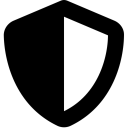
Michel Porter has dominated the literature and practice in the area of competitive advantage over the last 30 years. Competitive advantage is seen as a strategic position within an industry that ensures above average profitability. Today’s world is dynamic. Industry boundaries blur and unexpected events disrupt what we do leaving us with less than sustainable advantages as ever before. Creating "blue oceans" of uncontested market space marks an alternative. W. Chan Kim and Renée Mauborgne argue that such moves create a leap in value for all stakeholders in making competition irrelevant.
Unlike in the dynamic context we now operate in, management, invented in the early 20th century for a comparably stable environment, has little changed. We believe that it is time to transform management to be the ultimate capability and technology for the 21st century. But for this, management needs a different design –a design with agile features for a dynamic context. As such, management may as well be one of these moves that creates the few remaining competitive advantages.
"Management is a distinctive organisational capability."
The building blocks of any competitive advantage are the capabilities that organisations build from their resources. Why then not look at management as the capability that enables distinct competitive capabilities? By doing so, management turns itself into a competitive advantage. The dynamic capabilities literatures suggest ‘capability assessments’ as a means to better understand how well capabilities perform in a dynamic setting.
Hence, we now combine the idea of assessing capabilities with a well know concept. Looking at management as a competitive advantage opens the opportunity for a different kind of assessment. The VRIN criteria (initially proposed by Barney 1991, with his extensions to VRIO) offer the ultimate test for a capability to count as a competitive advantage: Valuable. Rare. Inimitable. Non-substitutable. VRIO then adds organisation to the idea. So, why not apply this concept to management?
Here is an application (somewhat loosely interpreted the concepts), and a test for management with 5 questions:
- Valuable? Does your management create value and get work done? Does it support people to get work done and create value?
- Rare? Does your management have a design that is unique, meaning organisation and context specific?
- Inimitable? Is your management hard to copy?
- Non-substitutable? Is there no alternative to your management?
- Organisation? Is your management practice deeply embedded in your organisation’s policies and procedures?
Valuable: Does management create value? In every organisation, management is performed through some sort of an operating system. Rules, routines, and tools help managers and people to get work done. A ‘virus’ free operating system has the potential to unlock the talent and promote meaningful work. Does your operating perform do what it was intended for?
Rare: Does your operating system meet the needs of your context and organisation? Every organisation is unique. Every context is different. Your operating system needs to fit your specific challenges and those challenges, accepted by your leaders and the organisation.
Inimitable: Is your management and your operating system hard to copy? The harder the unique management approach is to copy the higher is its competitive advantage. As such, it turns into a distinctive organisational capability.
Non-substitutable: Is there no alternative to management? Do members of the organisation have no alternatives to applying (and no way to short-cut) management by using the specific operating system? We all know managers and employees that have their own way of doing things – deviating from standard operating procedures with short-cuts. Accepting such behaviour is destructive for every organisation’s culture as it undermines the unique characteristics of its operating system. The better the operating system supports its users to apply good management, the more it creates a unique competitive advantage for the organisation.
Organisation: Are your routines, rules and tools deeply embedded in the organisation’s governance system and culture? The deeper the operating system is rooted in unique ways of how decisions are made, how performance is delivered, and how behaviours are demonstrated, the more it creates a competitive advantage.
These questions are intended to serve as observation points to focus leaders’ awareness on the need to design, develop and implement good management. With your answers, your management may turn into a true competitive advantage – far from any competition.
Let’s pool our researcher’s, practitioner’s and writer’s capacities to further dig into management as a competitive advantage and spot buckets of managerial blue oceans.
Seit 2002 bauen wir Zwillinge von Organisationen mit dem KI-basierten Betriebssystem zur dynamischen Führung.
Management Insights ist eine unabhängige Unternehmung im Privatbesitz mit Hauptsitz in Zuoz, Schweiz.
Kontaktieren Sie Lukas Michel, Gründer und Autor, oder unsere Partner weltweit für weitere Informationen.
Erleben Sie den kostenlosen ZWILLING.

